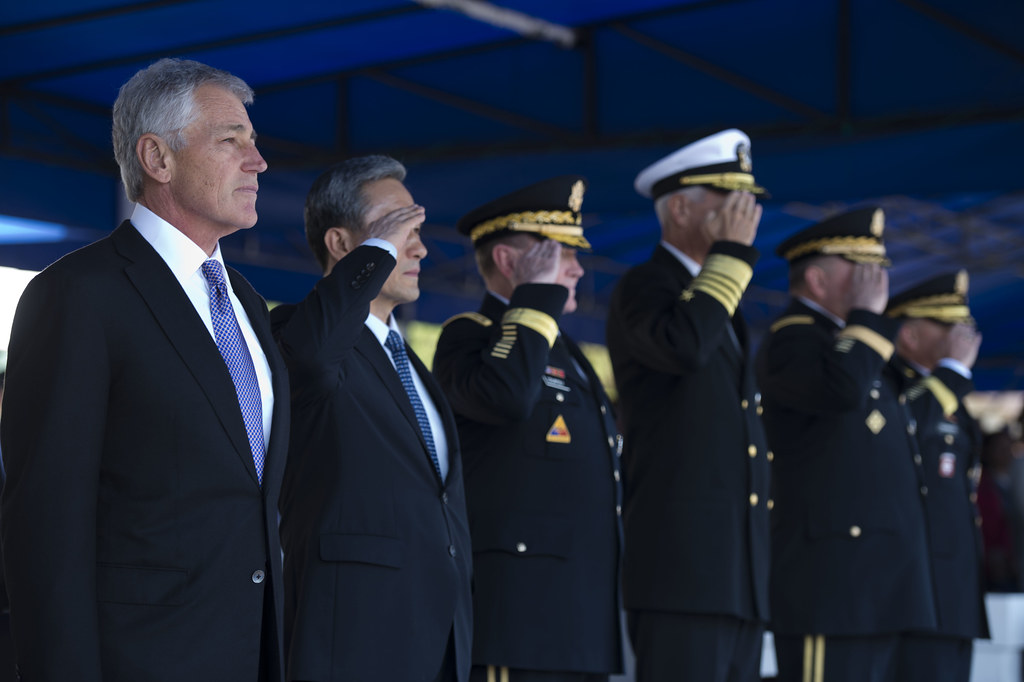<< Secretary of Defense Chuck Hagel stands with Republic of Korea Minister of Defense Kim Kwan-jin, Chairman of the Joint Chiefs of Staff General Martin Dempsey, Pacific Command commander Admiral Samuel Locklear, outgoing commander of United States Forces Korea commanding general General Robert Thurman, and incoming commanding general General Curtis M. Scaparrotti at a change of command ceremony in Seoul, Republic of Korea October 2, 2013. Hagel and Dempsey attended the ceremony where Thurman handed over command of the U.S. Forces Korea to Scaparrotti. Photo by Erin A. Kirk-Cuomo (Released) Image: Flickr user Chuck Hagel
By Chen Jimin
New constraints on US power create their own risks for the international community.
The 21st century is still young, but it has already presented the United States with a series of internal and external challenges. In the very first year, the U.S. faced a major security threat from non-state actors manifest in the 9/11 terrorist attacks, which completely changed Americans’ traditional view of their homeland as a safe haven.
Following the attacks, the Bush administration launched its global war on terrorism. Rather than achieve its stated objective, however, the war placed the U.S. under fiscal pressure and damaged its international standing. Meanwhile, America now faces a new challenge: the rise of non-Western countries, a development likely to have a much more far-reaching impact on U.S. hegemony.
When U.S. President Barack Obama took office, he found that global power had subtly but irreversibly shifted in a way that reflected the new features of the international system. Thus, in the U.S. National Security Strategy(2010) (PDF), the administration acknowledged that the international system needed to adjust to accommodate the interests of new centers of power.
Even as the United States was trapped in two wars, the U.S. domestic economy was facing its own crisis: the meltdown that followed the collapse of Lehman Brothers. Out of the recession that followed, new political and social movements emerged. The rise of Tea Party in 2010 produced a rupture in domestic politics. Late in September 2011, Occupy Wall Street targeted injustices in American society. Political squabbles on domestic issues such as health care, immigration reform, and the debt ceiling have had repercussions for U.S. diplomacy. For instance, Obama was absent from the APEC summit last year largely because of the government shut-down.
In the name of fiscal austerity, the U.S. Department of Defense was required to cut military spending by $487 billion over the next decade. U.S. Defense Secretary Chuck Hagel was prompted to complain: “these cuts are too fast, too much, too abrupt, and too irresponsible,” asserting that they would seriously restrict America’s readiness and ability to respond to challenges.
Read the full story at The Diplomat

